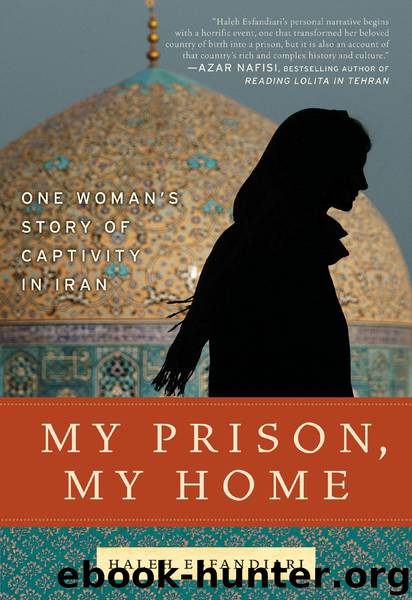My Prison, My Home: One Woman's Story of Captivity in Iran by Haleh Esfandiari

Author:Haleh Esfandiari [Esfandiari, Haleh]
Language: eng
Format: epub, mobi
ISBN: 9780061583278
Publisher: Ecco
Published: 2010-10-05T01:22:55+00:00
THE BARREN YEARS: BUSH II
These obstacles only multiplied during the presidency of George W. Bush. The new administration came to office believing that, as the world’s sole superpower, it could set the international agenda and need pay little heed to governments that disagreed with America’s policies and priorities. This view became entrenched after 9/11 and America’s overthrow of the Taliban in Afghanistan. The administration saw no need to compromise with countries like Iran and Syria that pursued policies in the Middle East opposed to U.S. interests. In Iran, President Khatami was much weaker than he had been during the Clinton years and his reform movement was in retreat. His successor, Mahmoud Ahmadinejad, elected president in 2005, adopted a populist style at home and a confrontational style abroad, which exacerbated long-standing issues between Tehran and Washington. The American invasion of Iraq and the collapse of the regime of Saddam Hussein found Iran and the United States competing for influence in that country.
Mistrust of Iran and a disregard for serious negotiations with Tehran characterized the attitude of the administration. This was illustrated during Bush’s first term by the response to an Iranian proposal for what some observers described as a “grand bargain” between the two countries. In May 2003, using the Swiss as intermediaries, Iran submitted in writing a proposal for comprehensive talks on all outstanding issues. In exchange for recognition of Iran’s legitimate security interests in the region and an end to U.S. sanctions and attempts to isolate Iran, the Islamic Republic expressed readiness to discuss its nuclear program, its policy in Iraq, its support for rejectionist Palestinian groups, and possible recognition of Israel within its 1967 borders. The Bush administration, however, did not give the initiative serious consideration or respond to it, and as a result no effort was made to test Iran’s sincerity in making these proposals. Other attempts by Iran to initiate bilateral talks in 2005 and 2006 were also rebuffed.
Initially, prospects for improved relations looked promising. The so-called six-plus-two talks on Afghanistan, initiated in 1997 among Afghanistan’s six immediate neighbors and representatives of the United States and the European community, continued under the Bush administration; and Iranian and American representatives met regularly around the same table. In 2001, these talks evolved into one-on-one talks, and representatives of Iran and the United States continued to meet in Paris and Geneva until 2003. Iran quietly assisted the American war in Afghanistan and was instrumental in helping the United States put together an interim government to run the country after the fall of the Taliban in 2001. Eager to see Saddam Hussein overthrown, Iran raised no objection when the United States invaded Iraq in the following year.
But perennial problems soon resurfaced. In January 2002, the Israelis captured a ship, the Karine A, which they said was carrying Iranian arms for the Palestinian Authority. The Iranians denied any connection, but the Bush administration saw the incident as evidence that Iran was continuing to play the spoiler in the Middle East. In
Download
My Prison, My Home: One Woman's Story of Captivity in Iran by Haleh Esfandiari.mobi
This site does not store any files on its server. We only index and link to content provided by other sites. Please contact the content providers to delete copyright contents if any and email us, we'll remove relevant links or contents immediately.
| Crime & Criminals | LGBT |
| Special Needs | Women |
We're Going to Need More Wine by Gabrielle Union(19020)
Pimp by Iceberg Slim(14464)
Bombshells: Glamour Girls of a Lifetime by Sullivan Steve(14038)
The Radium Girls by Kate Moore(12003)
Becoming by Michelle Obama(10004)
Educated by Tara Westover(8033)
The Girl Without a Voice by Casey Watson(7870)
Wiseguy by Nicholas Pileggi(5747)
The Wind in My Hair by Masih Alinejad(5070)
Hitman by Howie Carr(5058)
The Rules Do Not Apply by Ariel Levy(4941)
Hunger by Roxane Gay(4910)
On the Front Line with the Women Who Fight Back by Stacey Dooley(4850)
Year of Yes by Shonda Rhimes(4737)
The Borden Murders by Sarah Miller(4298)
Papillon (English) by Henri Charrière(4238)
Joan of Arc by Mary Gordon(4080)
American Kingpin by Nick Bilton(3858)
Patti Smith by Just Kids(3760)
